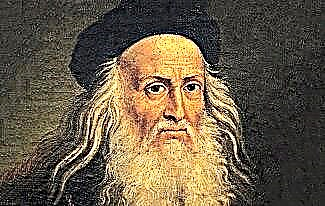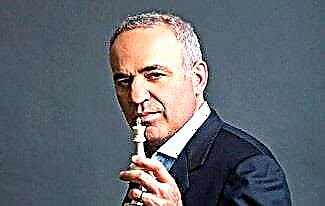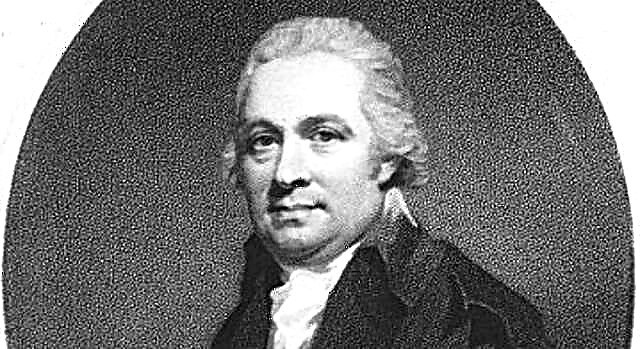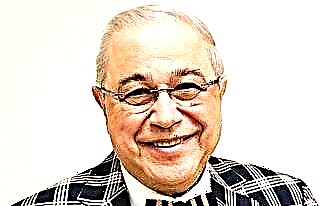It is difficult to say when a person first thought about how the physical world relates to the picture that appears in our consciousness. It is reliably known that the ancient Greeks thought about this, and about many other issues related to thinking, ideas, images of the environment that arise in the mind of a person.

This is known, first of all, from the works of Plato (428-427 BC - 347 BC). His predecessors did not bother to write their thoughts, or their works were lost. And the works of Plato have come down to us in a significant amount. They show that the author was one of the greatest philosophers of antiquity. In addition, the works of Plato, written in the form of dialogues, make it possible to judge the level of development of scientific thought in Ancient Greece. Fortunately, there was no differentiation of sciences at that time, and reflections on the physics of one and the same person could quickly be replaced by reflections on the best structure of the state.
1. Plato was born either in 428 or 427 BC. on an unknown day in an unknown place. Posthumous biographers fussed in the spirit of the times and declared the philosopher's birthday May 21 - the day on which Apollo was born. Some even call Apollo the father of Plato. The ancient Greeks were not surprised by this amazing information, which seems to us to be headlines aimed at driving clicks. They seriously talked about the fact that Heraclitus was the son of the king, Democritus lived to be 109 years old, Pythagoras knew how to work miracles, and Empedocles threw himself into the fire-breathing crater of Etna.
2. In fact, the boy's name was Aristocles. Plato began to call him already in adolescence because of some width ("plateau" in Greek "wide"). It is believed that the epithet could refer to the chest or forehead.
3. More cautious biographers trace the origin of the Pythagorean clan to Solon, who invented the jury and the elected parliament. Father Platnus's name was Ariston, and, oddly enough, there was no information about him. Diogenes Laertius in this regard suggested that Plato was born after an immaculate conception. However, the mother of the philosopher, apparently, was not alien to worldly joys. She was married twice, having given birth to three sons and one daughter. Both of Plato's brothers were also inclined to versification, philosophy and communication with other refined souls. However, they did not need to take care of a piece of bread - their stepfather was one of the richest people in Athens.
4. Plato's education was aimed at achieving kalokagatia - the ideal combination of external beauty and internal nobility. For this purpose, he was taught various sciences and sports disciplines.

5. Until the age of 20, Plato led a lifestyle typical for the Athenian golden youth: he participated in sports competitions, wrote hexameters, which the same wealthy idlers immediately called “divine” (they themselves wrote similar ones). Everything changed in 408 when Plato met Socrates.

Socrates
6. Plato was a very strong fighter. He won several victories in local games, but was never able to win the Olympics. However, after meeting Socrates, his sports career was over.
7. Plato and his friends tried to save Socrates from death. According to the laws of Athens, after voting for a conviction, the culprit could choose his own punishment. Socrates in a long speech offered to pay a fine of one minute (about 440 grams of silver). The whole state of Socrates was assessed at 5 minutes, so the judges were angry, considering the amount of the fine a mockery. Plato proposed to increase the fine to 30 minutes, but it was too late - the judges passed the death sentence. Plato tried to admonish the judges, but was expelled from the speaking platform. After the trial, he became very ill.
8. After the death of Socrates, Plato traveled extensively. He visited Egypt, Phenicia, Judea, and after ten years of wandering settled in Sicily. Having familiarized himself with the state structure of different countries, the philosopher came to the conclusion: all states, whatever their political system, are poorly managed. To improve governance, you need to influence the rulers with philosophy. His first "experimental" was the Sicilian tyrant Dionysius. During conversations with him, Plato insisted that the goal of the ruler should be to improve his subjects. Dionysius, who had lived his life in intrigue, conspiracies and squabbles, sarcastically told Plato that if he was looking for a perfect person, then so far his search had not been crowned with success, and ordered the philosopher to be sold into slavery or killed. Fortunately, Plato was immediately ransomed and returned to Athens.
9. During his travels, Plato visited the communities of the Pythagoreans, studying their worldview. Pythagoras, now better known as the author of the famous theorem, was a prominent philosopher and had many followers. They lived in communal communities that were very difficult to get into. Many aspects of Plato's teachings, in particular, the doctrine of universal harmony or the opinion about the soul, coincide with the views of the Pythagoreans. Such coincidences even led to accusations of plagiarism. It was said that he bought his book from one of the Pythagoreans, paying as much as 100 minutes to declare himself the author.
10. Plato was a wise man, but his wisdom did not concern everyday issues. Having fallen into slavery on the orders of Dionysius the Elder, he twice (!) Came to Sicily to visit his son. It is good that the younger titan was not as bloodthirsty as the father, and was limited only to the expulsion of Plato.
11. Plato's political ideas were simple and strongly resembled fascism. However, not at all because the philosopher was a bloodthirsty maniac - such was the level of development of social sciences and the experience of the Athenians. They opposed the tyrants, but they only forbade Socrates to distract people with conversations. The tyrants were overthrown, the rule of the people came - and Socrates, without delay, was sent to the next world. Plato was looking for the form of an ideal state and invented a country ruled by philosophers and warriors, all the rest meekly submit to the point that they immediately give up newborn children to the education of the state. Gradually it will turn out that all citizens will be brought up correctly, and then general happiness will come.
12. Originally, the Academy was the name of the area on the outskirts of Athens, in which Plato bought himself a house and a piece of land upon his return from distant wanderings and slavery. The land was under the patronage of the ancient hero Akadem and received the corresponding name. The academy has existed since the 380s BC. until 529 A.D. e.
13. Plato invented an original alarm clock for the Academy. He connected the water clock to an air reservoir to which a pipe was attached. Under the pressure of the water, air blew into the pipe, which made a powerful sound.
14. Among the students of Plato at the Academy were Aristotle, Theophrastus, Heraclides, Lycurgus and Demosthenes.

Plato talks to Aristotle
15. Although Plato's views on mathematics were very idealistic, for admission to the Academy it was necessary to pass an exam in geometry. Great mathematicians were engaged in the Academy, therefore some historians of this science all the ancient Greek mathematics before Euclid by the “age of Plato”.
16. Plato's dialogue "The Feast" was banned by the Catholic Church until 1966. This, however, did not limit the circulation of the work too much. One of the themes of this dialogue was Alcibiades' passionate love for Socrates. This love was by no means limited to admiration for the intelligence or beauty of Socrates.
17. In the mouth of Socrates in the dialogue "Feast" was put in a discussion of two types of love: sensual and divine. For the Greeks, this division was common. Interest in ancient philosophy, which arose in the Middle Ages, brought back to life the division of love based on the presence of erotic attraction. But at that time, for an attempt to call the relationship between a man and a woman "divine love" it was possible to go to the fire, so they began to use the definition of "platonic love". There is no information about whether Plato loved anyone.
18. According to the writings of Plato, knowledge is divided into two types - lower, sensual, and higher, intellectual. The latter has two subspecies: reason and a higher view, thinking, when the activity of the mind is aimed at contemplating intellectual objects.
19. Plato was the first to express the idea of the need for social lifts. He believed that rulers are born with a golden soul, aristocrats with silver, and everyone else with copper. However, the philosopher believed, it happens that two copper souls will have a child with a gold one. In this case, the child should receive help and take the appropriate place.
20. Plato's lofty theories amused Diogenes of Sinop, famous for living in a large barrel and breaking his own cup when he saw a little boy drinking with his hand. When one of the students of the Academy asked Plato to define a person, he said that it is a creature with two legs and no feathers. Diogenes, learning about this, walked around Athens with a plucked rooster and explained to the curious that this was “Plato's man”.

Diogenes
21. It was Plato who first spoke about Atlantis. According to his dialogues, Atlantis was a large (540 × 360 km) island lying west of Gibraltar. People in Atlantis appeared from the connection of Poseidon with an earthly girl. The inhabitants of Atlantis were very rich and happy as long as they retained a piece of the divine transmitted by Poseidon. When they were mired in pride and greed, Zeus punished them severely. The ancients created a lot of such myths, but in the Middle Ages they already treated Plato as a scientist, and took fragments of his dialogues seriously, popularizing the myth.

Beautiful Atlantis
22. The philosopher was an aristocrat to the core. He loved fine clothes and fine food. It was impossible to imagine him as Socrates talking to a carter or a merchant. He deliberately closed himself within the walls of the Academy in order to separate from the plebs and talk only with his own kind. In Athens, the pendulum of public sentiment just swung in the direction of democracy, so Plato was not liked and various unsightly acts were attributed to him.
23. The attitude of the Athenian public underlines the authority of Plato. He never held government posts, did not participate in battles - he was just a philosopher. But when in 360 the already elderly Plato came to the Olympic Games, the crowd parted in front of him as in front of a king or a hero.
24. Plato died when he was 82 years old, at a wedding feast. They buried him at the Academy. Until the very closing of the Academy on the day of Plato's death, the students made sacrifices to the gods and arranged solemn processions in his honor.
25. 35 dialogues and several letters from Plato have survived to this day. After serious research, all letters were found to be forged. Scientists were also very wary of dialogues. The originals do not exist, there are only much later lists. Dialogues are undated. Grouping them according to cycles or chronology provided researchers with work for years.








